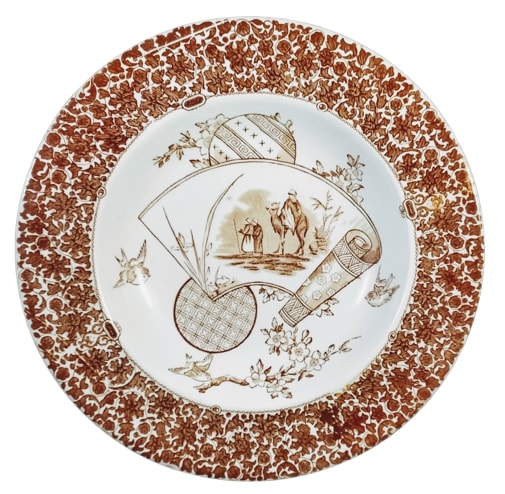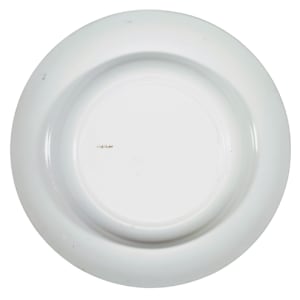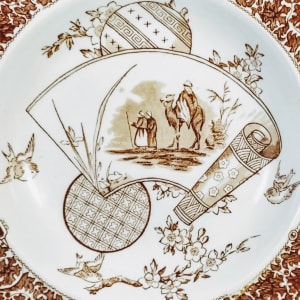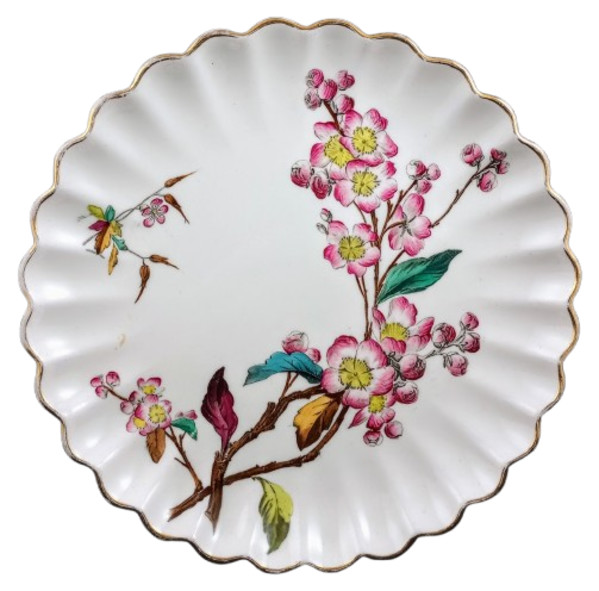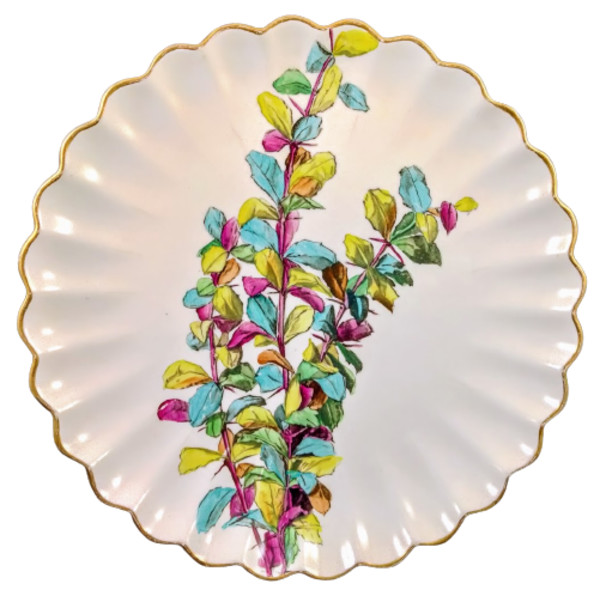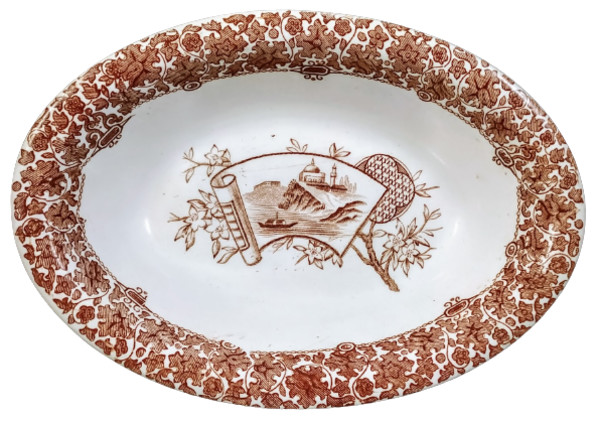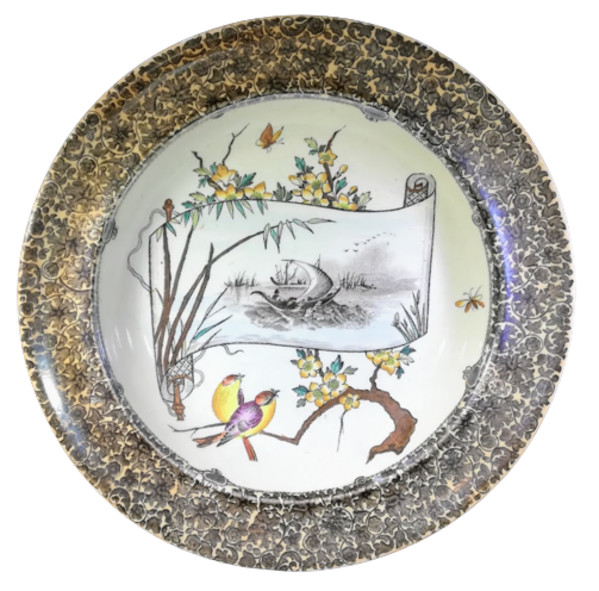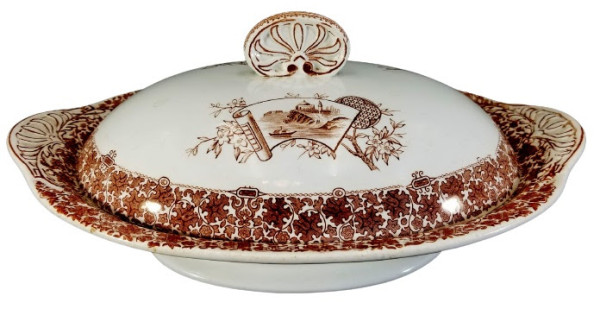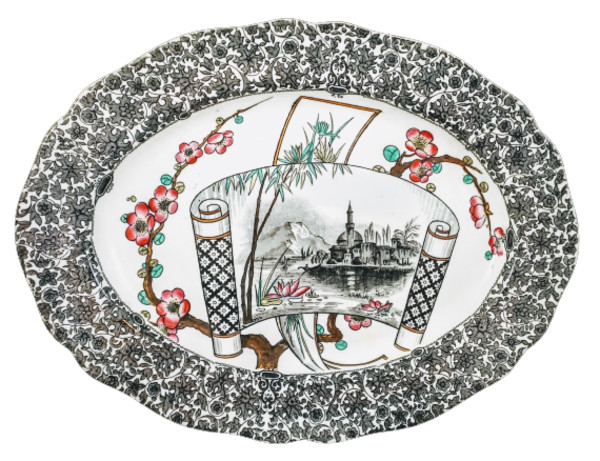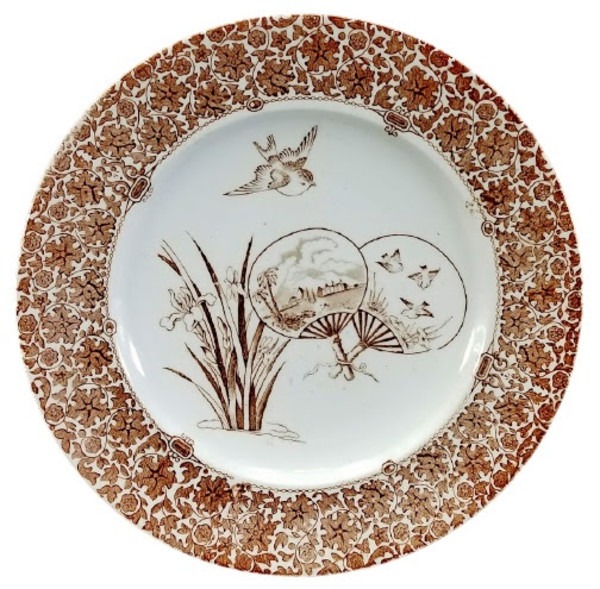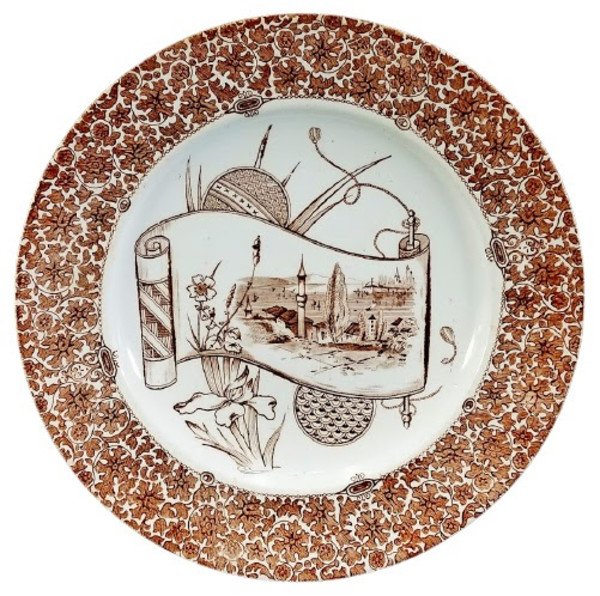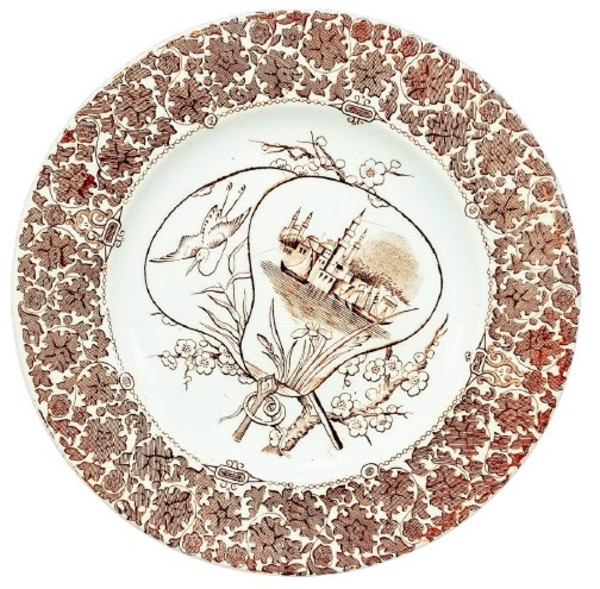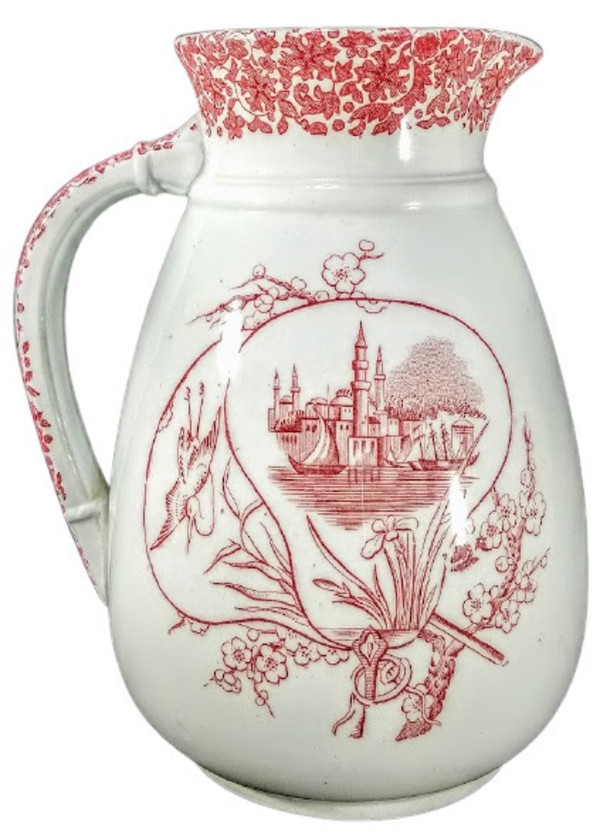- W. T. Copeland & Sons
- Cairo, 1881
- Earthenware
- 9.75 x 9.75 in (24.77 x 24.77 cm)
-
Not For Sale
Plate, 9.75 inches diameter. Brown transfer. Printed and impressed maker's marks for W. T. Copeland & Sons. The impressed 86 indicates a manufacture date of 1886. The "Cairo" pattern (no. 2/1796) was introduced in 1881. The border, known as "Arabesque," is seen on all the patterns in this series. This pattern features a large scroll cartouche with a camel and rider. Two men in robes with a long stick are walking ahead of the camel. The scroll is laid over two circular cartouches filled with geometric patterns, branches with blooming flowers, and three songbirds in flight.
W. T. Copeland was the only son of William Copeland, partner of Josiah Spode in the Stoke Potteries, of Staffordshire and of Portugal Street, London. He succeeded his father as head of the porcelain firm in Portugal Street, London and eventually bought out the interests of the Spode family in the business in the Potteries and London. He ran the business in partnership with Thomas Garrett between 1833 and 1847. After the dissolution of the Copeland and Garrett partnership, it traded as W.T. Copeland and Sons. (1847-1976). In 1866 Copeland was appointed china and glass manufacturer to the Prince of Wales.
- Subject Matter: Aesthetic (Cartouche)
- Collections: Aesthetic Transferware, W. T. Copeland & Sons
